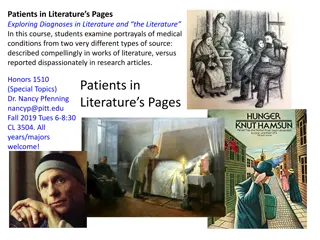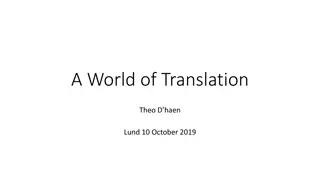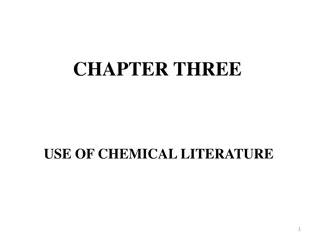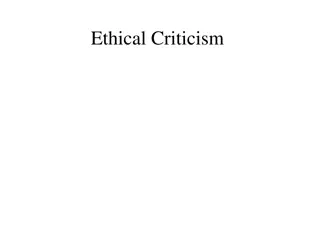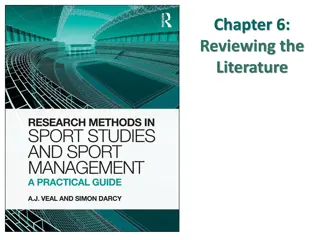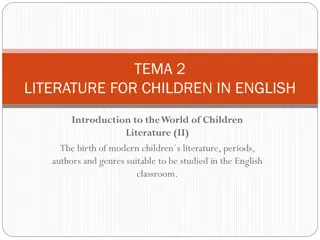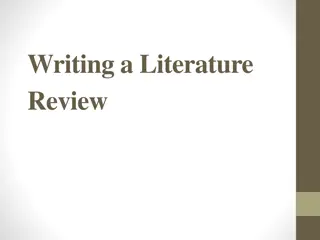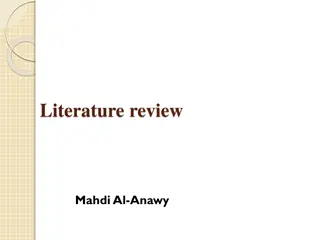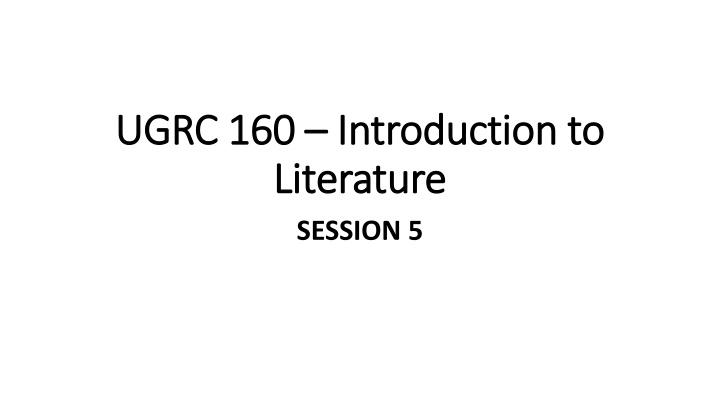
Novel: Insights on "Things Fall Apart" by Chinua Achebe
Gain a better appreciation of the novel as an invented prose narrative that deals with human experience and discover the complexity and historical antecedents of "Things Fall Apart" by Chinua Achebe. Explore the formal characteristics of novels and delve into the socio-cultural relevance portrayed in the text.
Download Presentation

Please find below an Image/Link to download the presentation.
The content on the website is provided AS IS for your information and personal use only. It may not be sold, licensed, or shared on other websites without obtaining consent from the author. If you encounter any issues during the download, it is possible that the publisher has removed the file from their server.
You are allowed to download the files provided on this website for personal or commercial use, subject to the condition that they are used lawfully. All files are the property of their respective owners.
The content on the website is provided AS IS for your information and personal use only. It may not be sold, licensed, or shared on other websites without obtaining consent from the author.
E N D
Presentation Transcript
UGRC 160 UGRC 160 Introduction to Introduction to Literature Literature SESSION 5
Session Objectives Session Objectives At the end of the session, the student will 1.Gain a better appreciation of what the novel is and how it works. 2.Appreciate the complexity of the novel and how it complicates each element of the narrative discussed in the earlier session of Short- Fiction. 3.Understand the Historical antecedents and implications of Achebe s Things Fall Apart. 4.Gain a better insight or understanding of Achebe s arguments in The Novelist as Teacher.
The Novel The Novel Part 1 Characteristics Characteristics Part 1 Some Formal Some Formal What is a Novel? An invented prose narrative of considerable length and a certain complexity that deals imaginatively with human experience, usually through a connected sequence of events involving a group of persons in a specific setting. A fictitious prose narrative of considerable length and complexity, portraying characters and usually presenting a sequential organization of action and scenes.
Formal Characteristics of the Novel Formal Characteristics of the Novel For an understanding of the formal features or characteristics of the Novel, please re-visit Session Slides on the Elements of Short-Fiction (i.e. Plot, Character, Setting, Point of View, Theme, Style). However, there is some noticeable distinction/difference in how these elements operate in Short-Fiction and the Novel. As a comparatively longer prose work, the Novel form complicates or shows some peculiarities in its representation of the Prose elements.
THE NOVEL THE NOVEL THINGS FALL APART
Understanding the Historical Antecedents and Understanding the Historical Antecedents and Contemporary socio Contemporary socio- -cultural relevance of Chinua cultural relevance of Chinua Achebe s Text Achebe s Text Stereotypes and the Problem of Negative Portrayals of the African Continent and Her Peoples
What do you think is Wrong with these Portrayals of Africa and her people? The colonialist agenda of stereotyping the African continent and labelling the continent and her people as backward, starving, unenlightened people seems to recur in contemporary depictions of the Continent. This agenda of telling the African story in a way that mutilates or distorts Africa s image is one of the issues that underpins Achebe s literary production.
CONTEXT CONTEXT History Meets Fiction History Meets Fiction While it offers a certain perspective on colonial history, Things Fall Apart is not strictly a historical novel. Historical novels, by definition, fictionalize historic events and bring them to life with invented details, characters, dialogue, etc. And while Things Fall Apart does situate itself within a specific historical context (Nigeria at the moment of colonization), it does not attempt to recreate actual events or re-characterize historical figures.
In other words, while it is engaged with the historical theme of colonialism in Nigeria and Igbo culture, it is wholly fiction. The novel seems to be set in the 1890 s, but was first published in 1958, 2 years before Nigeria s Independence. So, the novel is not wholly historical or contemporary, even though it may help us understand issues relating to the past and what pertains in present time.
The last four or five hundred years of European contact with Africa produced a body of literature that presented Africa in a very bad light and Africans in very lurid terms. The reason for this had to do with the need to justify the slave trade and slavery. This continued until the Africans themselves, in the middle of the twentieth century, took into their own hands the telling of their story. (Chinua Achebe, An African Voice , The Atlantic)
INSERT VIDEO OF CHIMAMANDA NGOZI ADICHIES THE DANGER OF A SINGLE STORY
The Three Cs The Three C s - - Why They (Europeans) Came Why They (Europeans) Came Commerce One of the crucial factors that influenced the presence of Europeans in Africa was Trade. Civilization Europeans, with a preconceived notion of the superiority of their culture, felt they had a duty to civilize the rest of the world. Christianity Europeans assumed that everything that originated from Africa was inherently backward and inferior to the European way. Thus, they had as an objective, Christianizing the African continent, and saving them from their idolatrous religions.







